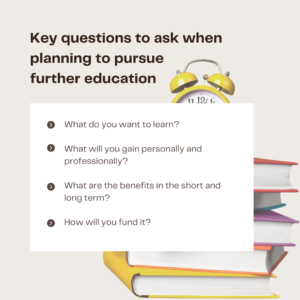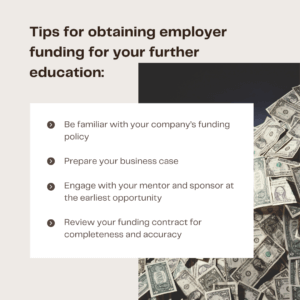Has it really been over a year since my last postgrad zoom classes? That final week of postgrad lectures in July last year was uniquely special to me because it fell on my birthday week. When normally I would be spending my holidays somewhere by the beach and enjoying the sun and the sea – there I was cooped up in our warm attic, electric fan on highest setting, and glued to my laptop screen for the final hours of my postgrad lessons on “Strategy in Action.”

And as a bonus, my classmates sang happy birthday to me over zoom. It was not the best singing, that I can tell you (sorry classmates!) – but nevertheless it was still very touching and that’s the first time ever that I had been sang the birthday song over zoom. Everyone was in high spirits – you can feel it although virtually – at least I was as it was definitely a milestone of surviving – er, thriving – the program so far. It was like reaching 80% progress and the remaining 20% would be the final paper.
Back in April of this year, I wrote an article in Roots and Wings magazine: Ovfabpinay in Oxford. In that article, I covered my key takeaways from my postgrad journey. In addition to that article, I also want to share some insights on how to plan for one’s postgrad studies.
First, the key questions that you should ask yourself:

- What do you want to learn? – “want”is the key word in this question. You have to be highly interested in what you will study. Going back to school can be challenging, especially if you have to do it on top of your normal job, so motivation is super important.
- What will you gain personally and professionally? – New skills? Credentials? Expanding your network? Career progression? Higher salary? List them all – and I hope that your list is long or convincing enough to really pursue higher education.
- What are the benefits in the short and long-term? – Very similar to the previous question but also evaluating the impact of your studies timing-wise. A short-term impact can be getting that promotion or getting a job, while a long-term benefit can be being recognized as an expert in a particular field.
- How will you fund it? – Higher education is not cheap. What are your options? Check if there are any scholarships that you can apply to or if your employer provides funding. Otherwise, then self-funding it is – better start checking how much your target course costs so you can start saving!

Second, I also want to give you some tips on how to obtain funding from your employer:
- Be familiar with your company’s funding policy – Is there a policy in the first place? If yes, are you eligible for the funding? What are you entitled to? Is there a maximum amount given? What types of cost are funded (i.e. tuition, travel expenses, time-off, etc.)? How and when will the fund be paid out? – Very important. Your employer paying the school directly vs. you paying and then getting reimbursed later makes a big difference in terms of cash flow. What are the requirements to apply for the funding?
- Prepare your business case – Be ready with your sales pitch – How will this further studies benefit your role, function or business as a whole? How is it connected to your job? Is it aligned with your development plan?
- Engage with your mentor and sponsor at the earliest opportunity – This is very important. I have made mistakes with this in the past where I just came out of the blue with my funding request. I had my reasons – I was aiming for the world’s top universities so I really wanted to make sure that I get accepted first before I inform my line manager. But what happened? It appeared as though my request was out of the blue and not really aligned with my development plan. It seemed more like a personal agenda. If you have a mentor, run the idea by him/her first and get some feedback and advice on how to present your business case to your sponsor. Your mentor can also potentially help influence the decision of your sponsor. For your sponsor – discussing your intent to pursue further education will help get an early feedback if you are on the right track (i.e. is the course you’re targeting make sense?) and to really confirm if they are willing to support you. If you know the answer is no right away, then at least you won’t be bothered with all the paperwork, right? Just start saving money or maybe start thinking of moving to another company that has better benefits.
- Review your funding contract for completeness and accuracy – If you happen to get approval for the funding, make sure that you review your contract before signing the dotted line. Are you getting the right amount and coverage of costs? Are the terms for the payout of the fund stated? Is there a bond and is the duration correct? A bond is when an employee who was granted funding will be required to stay with the company for a certain duration of time – example, for a week long course and certain amount, you have to be with the company for at least another year or otherwise you have to pay the fund back. If this is the case – negotiate for pro-rata payback calculation in your contract so you only pay a proportion (and not full cost) of the fund corresponding to the length of time that you stayed with the company.
Planning for further studies requires a lot of research and preparations. If done properly, it then becomes easier to justify your application and even obtain funding. Good luck and I hope these insights and tips can be helpful to you!





